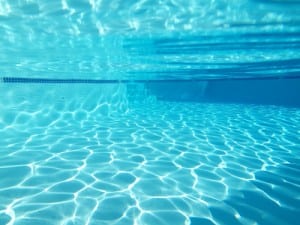SwimRight Pool Service & Repair contractors check explain pool alkalinity
What is pool alkalinity? It’s a question the swimming pool service professionals at SwimRight Pool Service & Repair get asked by customers who are trying to understand the complexities of swimming pool water chemical balancing. Alkalinity is one of the many balances that your pool contractor will check and bring into alignment when he pays a service visit. Chemical levels need to be addressed, balanced and continually monitored to keep the water free of bacteria, the pool equipment from being damaged by chemicals that are out of alignment and safe for swimming. The task of keeping the chemicals balanced is a delicate act and one that swimming pool service contractors are experienced with.
Chemical testing is a crucial aspect of pool ownership as is skimming, vacuuming and other pool maintenance tasks. It can be a lot of work, especially if you don’t know what you’re doing!
What is pool alkalinity?
The alkalinity levels of the swimming pool is one of the many levels that your pool contractor will measure when he pays a service visit. Total alkalinity; is associated with pool water pH levels. It is a measure of hydrogen ion concentration in the water. Total alklinity measures the ability of the water to neutralize hydrogen ions. The alkalinity of your swimming pool water is measured in parts per million (ppm). Total alkalinity comes from the carbonates, hydroxides and bicarbonates.
Total alkalinity in the water is a measure of your swimming pool water’s resistance to change in the pH.
Why do alkalinity levels matter?
If total alkalinity is too low, the pH in the water will change rapidly when chemicals or other impurities enter the water. If the pH experiences a rapid decrease, it leads to etching of the tiles and corrosion of the filters and plumbing and other crucial swimming pool components. It can be costly to let the alkalinity levels get out of line.
An experienced swimming pool service contractor understands the sometimes subtle nuances of pool water chemistry and the importance of keeping all chemicals balanced so they all work properly together to prevent equipment damage. When total alkalinity gets too high it becomes more difficult and time-consuming to adjust to proper levels. When it gets out of balance, it may require the services of a swimming pool contractor who is experienced in chemical balancing.
What will need to be done to get alkalinity levels in line?
Your pool contractor will add sodium bicarbonate to raise total alkalinity. Other chemicals will need to be monitored as addressing one, can sometimes lead to others getting out of balance.
Bottom line: It is always easier and less expensive to work with a pool service professional who will manage and track chemical balances regularly so the pool water won’t require means to rebalance. Swimming pool owners can purchase a test kit for the water chemical balancing — and they should — and should check the water on a regular basis to keep the chemicals in line between visits, but you may find it costs you less money and it will certainly save you time, to work with a pool service professional.


